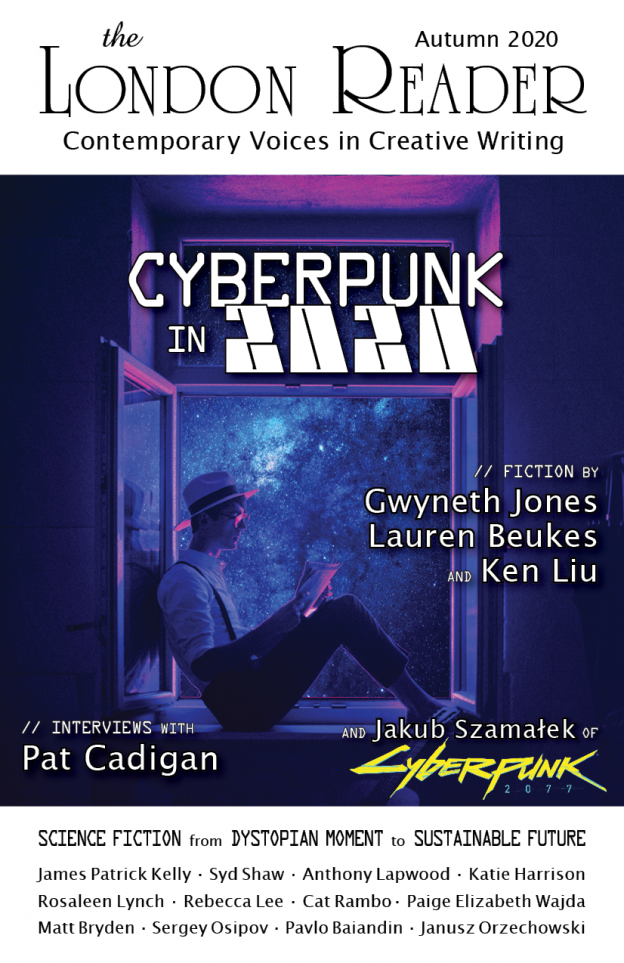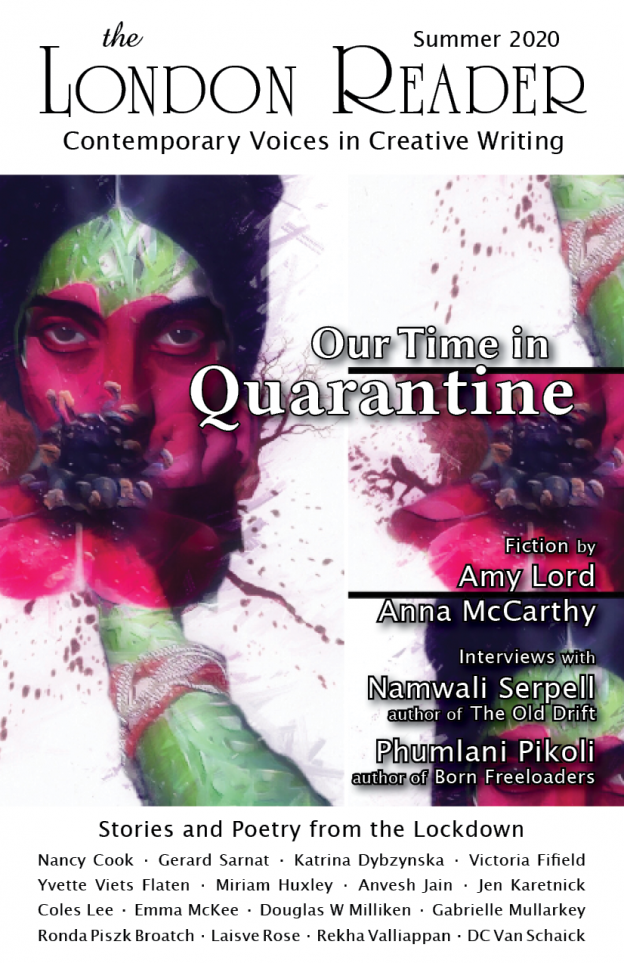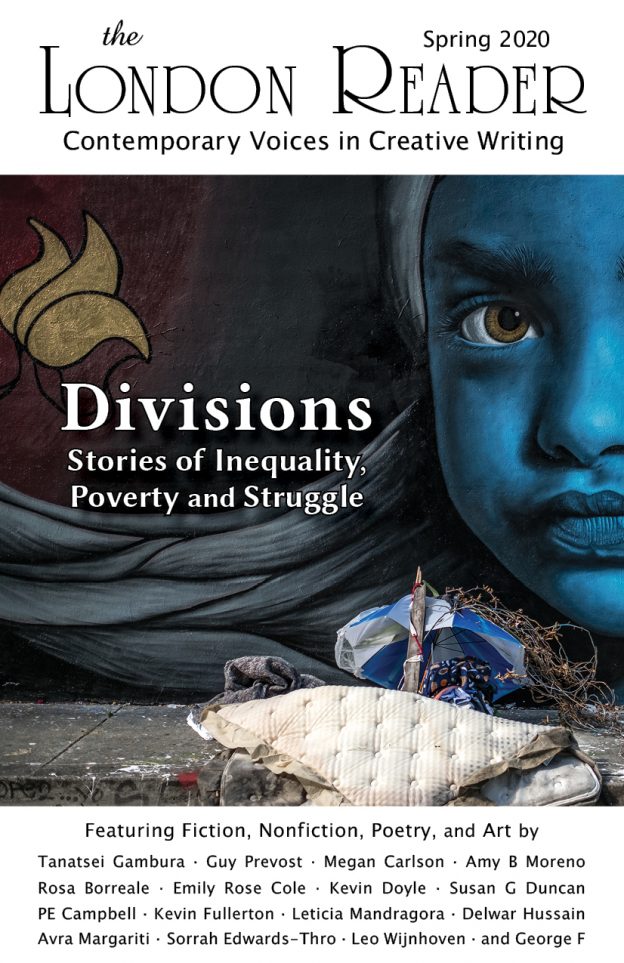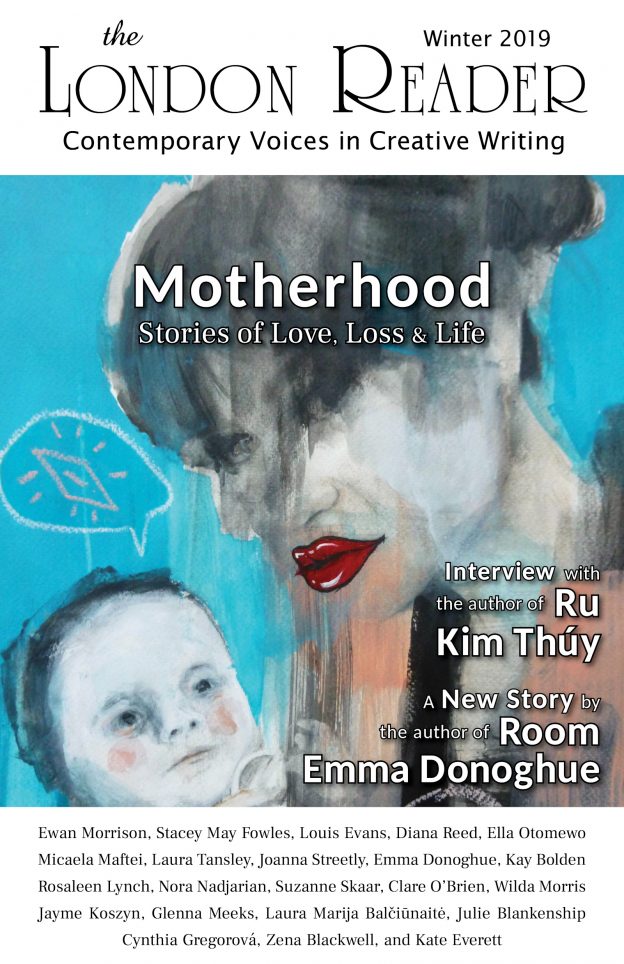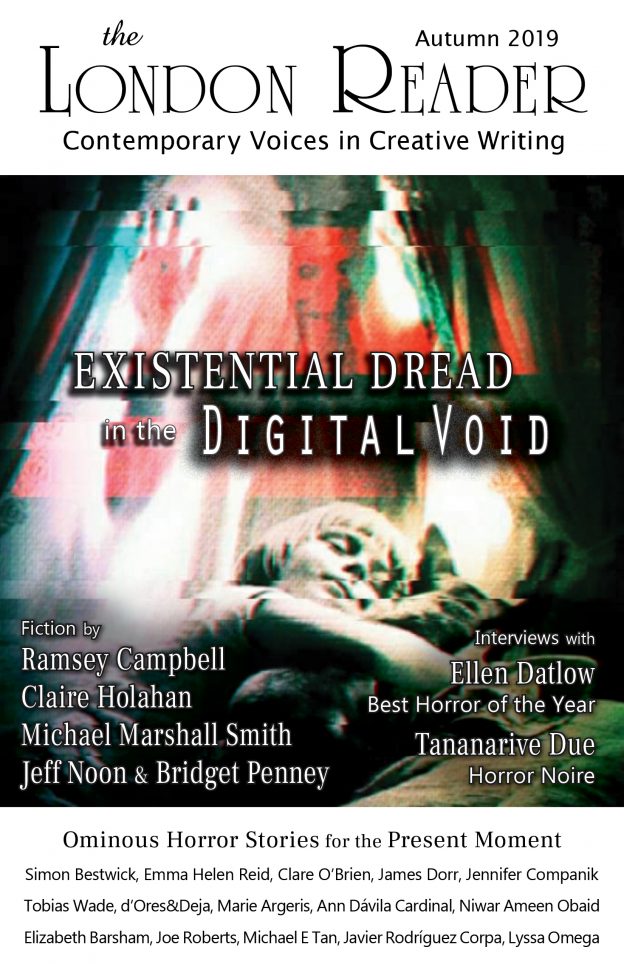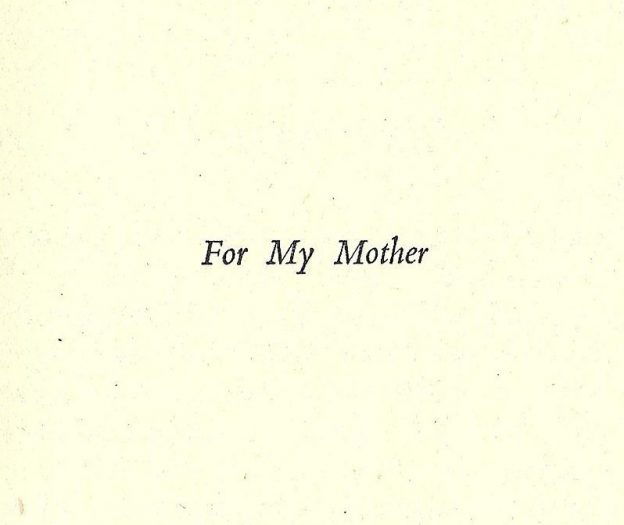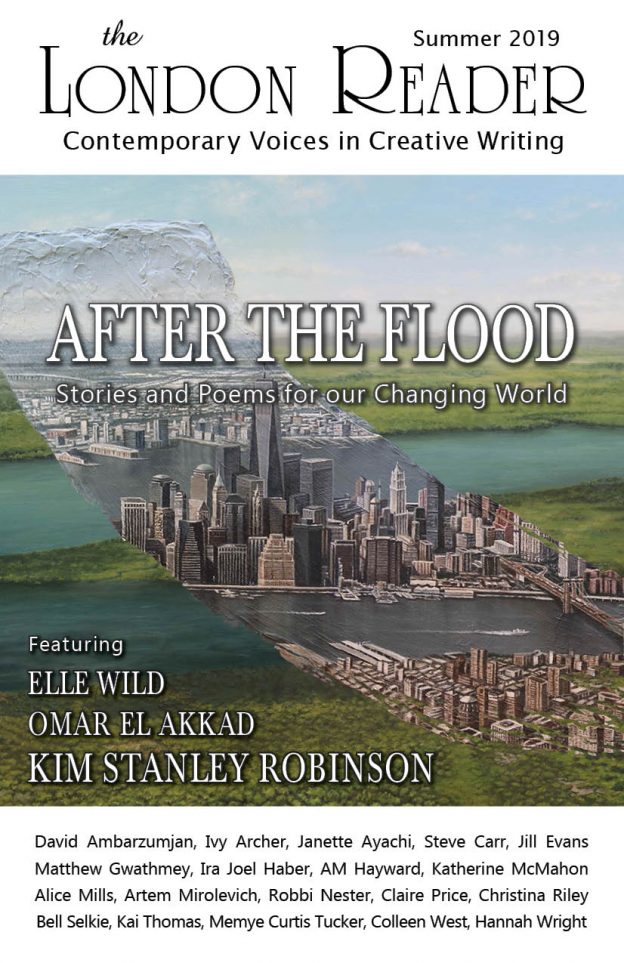Science Fiction from Dystopian Moment to Sustainable Future
Check out Cyberpunk in 2020…
- on Amazon.com
- on Amazon.co.uk
- on Amazon.ca
Subscribe to either the Print or PDF edition of the London Reader to receive four great issues per year
It’s 2020—now where’s my flying car?
Pat Cadigan, a founder of the cyberpunk literary movement who is interviewed in this volume, famously answered, “That’s not the future we promised you. We promised you a dark technological dystopia. How do you like it?” It’s 2020, and the dark technological dystopia has arrived.
//
The fiction in this volume takes a look at the dystopian state of the world and dares to imagine an optimistic alternative, planting seeds of hope and drawing on solarpunk themes of a habitable future powered by renewable energy, networked-collaboration, and repaired technology. Like us, these stories stand at a crossroads between climate collapse and a radically reshaped sustainable future. The dystopia envisioned by 1980s cyberpunk authors has arrived. Will we continue down this path to self destruction, or do we dare envision a better future?
This volume features a collection of multi-award-winning cyberpunk authors who move the genre away from the 80s action movie aesthetic of bakelite guns and neon-lit street races and into our increasingly networked existence facing ecological collapse.
Stories from Nebula Award-winning authors Ken Liu, James Patrick Kelly, and Cat Rambo expose the pervasiveness of the internet as it intrudes into our most private and tragic moments. Arthur C Clarke Award-winners Gwyneth Jones and Lauren Beukes offer optimistic visions of the ways technology can connect us. This volume also features stories, minifiction, and poetry from Matt Bryden, Katie Harrison, Anthony Lapwood, Rebecca Lee, Rosaleen Lynch, Syd Shaw, and Paige Elizabeth Wajda who shine the light of their screens on this dark moment, looking for the loose strands that connect us together. Art by Pavlo Baiandin, Janusz Orzechowski, Sergey Osipov, and Harry Purnama display views of the dark street-scapes of the 21st century and glimpses of how our imagination and connections to each other can offer us a way out.
This volume also includes interviews with visionary author and Hugo, Arthur C Clarke, Locus, and Seiun Award-winner, Pat Cadigan and the novelist and principal writer for the upcoming and long-awaited game Cyberpunk 2077, Jakub Szamałek. They reflect on our dystopian moment and provide their views of where we go from here while Szamałek also answers what is cyberpunk in 2077.
The writing in this volume brings us up to date from the cyberpunk of the past. It attempts to debug the interconnected nature of the internet-driven world we now live in. It springs from our fears of a climate catastrophe while at the same time offers us an alternative vision. The future that the cyberpunk authors of the 80s warned us of is here. The dark technological dystopia is only getting worse. Social media is disrupting democracies, and the climate is collapsing. If we don’t act now, there will be no future. But it’s not too late; there is still hope. The choice is ours.
Check out Cyberpunk in 2020…
- on Amazon.com
- on Amazon.co.uk
- on Amazon.ca
Part of the proceeds from this issue supports GiveDirectly. GiveDirectly is a charitable organization that sends donations immediately and directly to those most in need. Find out more at givedirectly.org

